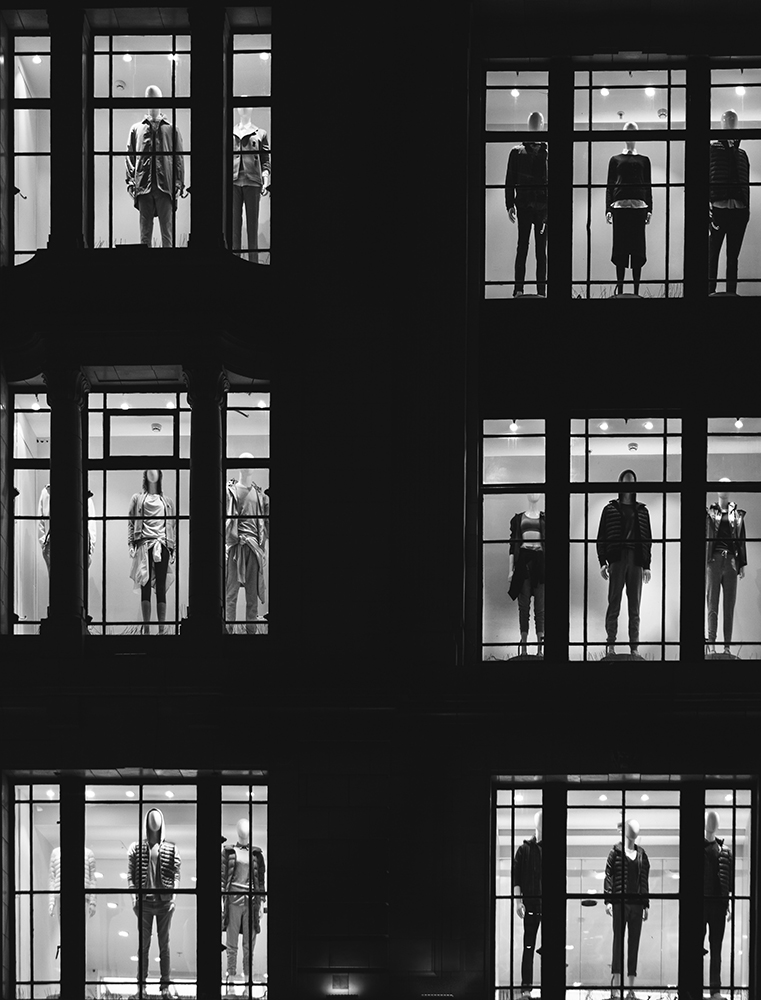
Plus, I adored the ending of Greta Gerwigs Little Women.
In the final scenes of the movie, Gerwig deftly manages to have it both ways to give us a sappy romantic ending and suggest that that ending is pure focus-tested fantasy. We see both Jo racing in the rain to claim her true love and Jo telling her editor that the heroine of the story that we are watching should end up alone. No, he replies; for the story to sell, she must marry.
We want both: We want Jo to be a successful, independent woman, happily unmarried, and we want her to be happily married and in love. Thrillingly, Gerwig gives us both.
But both is not a feature of real life.
Yes, its true that today we can have both children and a career, although as Calhoun points out, thats harder to do than we were promised. But we cant both have children and not have children. We cant be both married and single. We have to choose.
I told my son the other day that I wasnt the type for a midlife crisis, and he raised his eyebrows and then plucked from my purse my brand-new New York Public Library Card, procured on my last visit to the city. I dont live in the city. I dont even live in a city. I live on a farm in upstate New York. I didnt mean to choose a suburban/rural life, but thats what I did. And now I find myself carrying a tiny piece of the city around in my purse, a memento of a life I dont lead.
A midlife crisis is the realization that, whether we meant to or not, we have chosen. Because it presumes choice, the midlife crisis is predicated on privilege I get that. It still doesnt feel good.
And it feels worse for women, whose choices remain more limited than mens. As the New York Times points out, the language of personal choice obscures the fact that, absent paid family leave, public preschool and a widespread change in gender expectations, women arent really free to choose. Women still bear the children, bear the brunt of child care and elder care, and bear disproportionately the effects of income inequality and a poor social safety net.
Calhoun argues that, despite having more options than our mothers did, Gen X women feel even worse at midlife because we expected better. The first of the Gen X birth years, the mid-1960s, coincided with the passage of Medicare, Medicaid and Head Start. In 1972, smack in the middle of my generations emergence into the world, Congress passed Title IX and the Equal Rights Amendment. My sisters and I marched in an ERA demonstration in Harrisonburg, Va., when I was 8.
It totally worked: Virginia ratified the amendment,
just 42 years later.
At the time, of course, we didnt realize all that remained stacked against us in our culture, in our institutions and in our heads. We believed we could be and do anything, that we were Jo but with the pill and the right to vote, Jo but with infinite options.
And though those options were not infinite, they were expansive enough to give us the illusion of infinity. Until the moment we opted for one path over another then we lost it. Our sense of youthful potential. Our Jo-ness.
Now my sisters and I are all Marmee, if not angry nearly every day of our lives then at least suffering what Calhoun describes as the contrast between our you can be anything indoctrination and the stark realities encountered in midlife.
There is no cure for this condition. Understanding, perhaps, that we both want and dont want advice, Calhoun does and does not give it. She recommends less social media, more sleep and maybe a regular poker game with the gals. But mostly she settles on the idea that well just age out of it. We need to lower our expectations. If we just wait, time will do that for us.
Meanwhile, we can go to the movies to feel like Jo again, and revel in a moment when both seems briefly possible.
When we left Little Women, I discovered that my husband was less enchanted than I with the narrative ambiguity, the Möbius-strip quality, of the movies ending. It didnt make sense logically! Did she marry him in the end or didnt she?
Yes! I cried triumphantly. Yes!
Read more:
Helaine Olen: For Gen X women, middle age is exhausting. Heres why.
Ruth Marcus: Reaching the age when age is a liability especially for women
Nikki Stamp: Im a female surgeon. I feel uncomfortable telling girls they can be one, too.
Molly Roberts: Sheryl Sandberg and the emptiness of leaning in
Alyssa Rosenberg: What the 2020 Oscar nominations tell us about white men





More Stories
After a cluster of new COVID-19 cases among the White House staff and a campaign offical, the election night watch party in the White House has become another symbol of U.S. President Donald Trump’s cavalier attitude toward a virus that is ripping across the …
Rob Lucas says the SA economy is forecast to go backwards by 0.75pc in 2020-21, a better outcome than a national economy forecast to shrink 1.5pc.
Labor and crossbench senators want changes to JobMaker, arguing too many workers will be excluded from the hiring credit scheme.